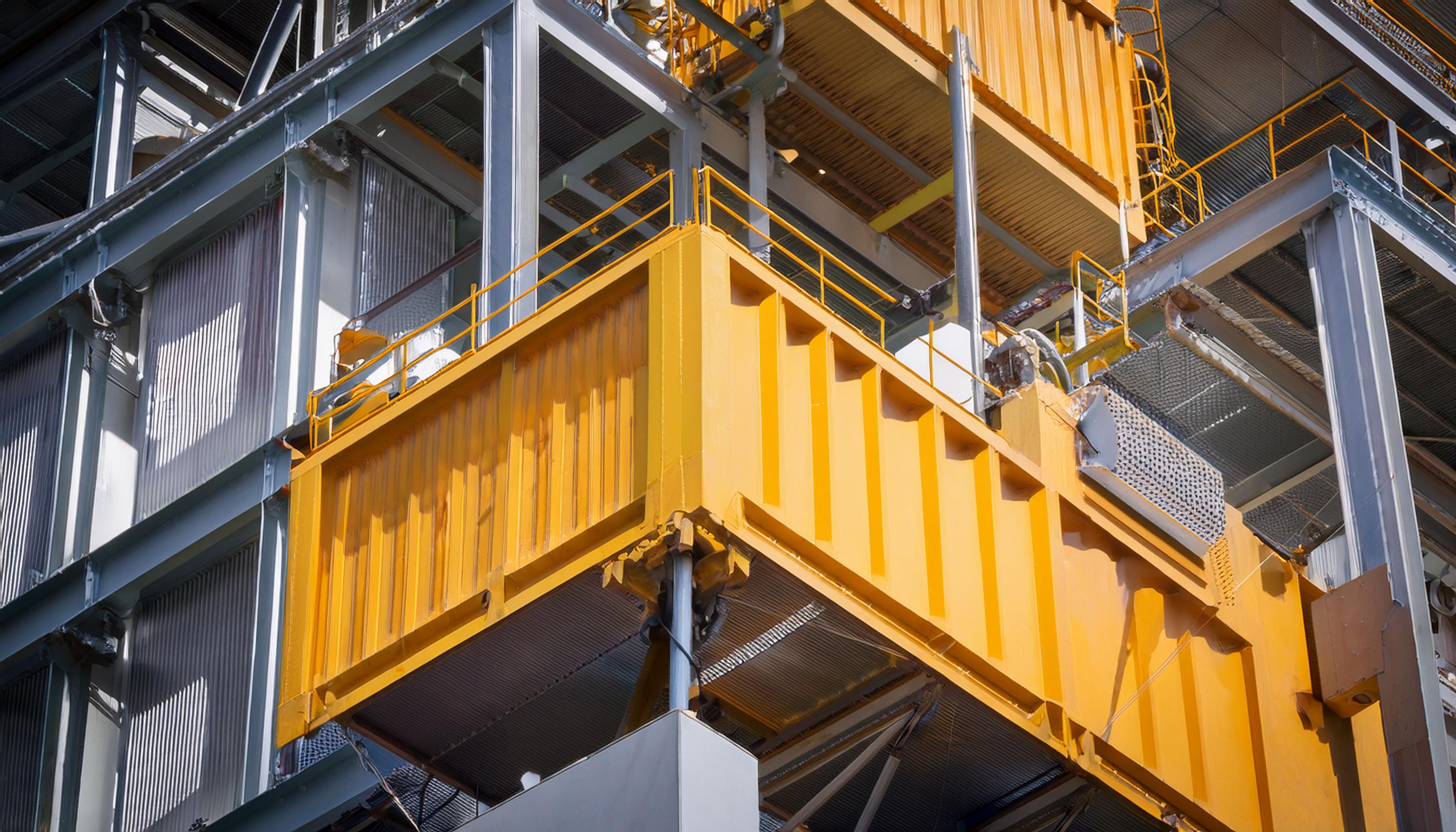Understanding the Exterior Elevated Elements Inspection Program

Table of Contents
What Is the Exterior Elevated Elements Inspection Program?
How Are Exterior Elevated Elements Inspected?
How Often Should Balcony Inspections Be Done?
FAQ Section: Top Questions & Answers
Maintaining the structural integrity of balconies, decks, and other elevated elements is critical to ensuring safety for tenants and residents. California’s Exterior Elevated Elements (EEE) Inspection Program aims to enforce regular inspections of balconies and decks under two key regulations: SB326 inspection for condominium associations and SB721 inspection for multifamily residential buildings. This blog will break down the details of these inspection programs, what they entail, and how to stay compliant.
What Is the Exterior Elevated Elements Inspection Program?
The Exterior Elevated Elements (EEE) Inspection Program is a legislative initiative designed to ensure that all exterior, load-bearing structures like balconies, decks, and walkways are structurally sound and safe for continued use. It specifically addresses the safety concerns arising from the aging and deterioration of these elements, especially in multifamily residential properties and condominium associations.
SB 721 inspections and SB 326 inspections are key elements of this program, requiring regular inspections to identify any structural deficiencies that could compromise the safety of occupants.
Who Needs to Comply with SB 721 and SB 326?
Both SB 721 and SB 326 target properties with Exterior Elevated Elements (EEE), but there are differences in the type of buildings that fall under these laws. So, who is required to comply?
- SB 721 applies to apartment complexes and other multifamily residential buildings with three or more units.
- SB 326 applies to condominium associations and community apartment projects.
Both laws require balcony inspections every nine years, focusing on any elements that are six feet or more above the ground and supported by wood or wood-based materials.
How Are Exterior Elevated Elements Inspected?
Property owners are required to hire a licensed inspector or architect to conduct the balcony inspections and issue a report. These inspections involve a visual assessment and may include destructive testing to check the condition of load-bearing components like joists, beams, and connectors.
Some of the common issues inspectors look for include:
- Wood rot and dry rot: A major concern for wooden elements that are not properly treated or exposed to moisture over time.
- Rust and corrosion: Often found in metal connectors, screws, and fasteners, especially in coastal or high-moisture areas.
- Cracks and structural movement: Cracks in concrete balconies or signs of settlement can indicate significant underlying issues.
After completing the inspection, the inspector will provide a balcony inspection report, outlining their findings and recommended actions.
What Should Property Owners Do If Defects Are Found?
If the balcony inspection report reveals structural deficiencies, property owners must act promptly. Here’s what you need to do:
Develop a Repair Plan: Work with licensed professionals to develop a detailed repair plan. This should include materials, costs, timelines, and compliance with all state and local regulations.
Prioritize Safety: Address immediate safety risks first. If the balcony or deck poses a hazard, it may need to be cordoned off to prevent access until repairs are made.
Stay on Schedule: The law gives a specific time frame for repairs based on the severity of the damage. Typically, property owners have 180 days to complete repairs once they’ve received their report, though emergency repairs may need to be done sooner.
File Inspection Reports: Property owners must keep records of their balcony inspection reports and repair activities for future audits or assessments.
Contact DrBalcony for a professional inspection!
Ensure the safety of your balcony and living space with DrBalcony – We’re a Tech Engineering firm that specializes in California SB326 & SB721 balcony inspections. Over 300+ completed projects in California.
Request A Free EstimateClick To Call
How Often Should Balcony Inspections Be Done?
Both SB721 and SB326 require property owners to conduct EEE inspections every nine years, ensuring the longevity and safety of their balconies and decks. However, many experts recommend routine maintenance and periodic inspections to catch any minor issues before they become significant problems.
Regular inspections and prompt repairs can save property owners from costlier fixes down the road and protect them from liability concerns.
What Are the Consequences of Non-Compliance?
Failing to comply with SB 721 or SB 326 can result in hefty fines, penalties, and legal action. Property owners who do not schedule or perform required inspections are also at increased risk for liability in the event of accidents or injuries caused by structural failure.
Given the high stakes, it is essential to stay on top of inspection schedules and ensure that balconies and decks are regularly maintained and inspected.
Why Is Regular Maintenance Important for Exterior Elevated Elements?
Routine maintenance is key to preventing serious damage that could compromise the integrity of Exterior Elevated Elements. Preventative measures include:
- Sealing and waterproofing: Wood components should be regularly sealed to protect them from moisture and prevent rot.
- Rust prevention: Metal fasteners, screws, and railings should be treated with rust inhibitors to prolong their lifespan.
- Regular cleanings: Keeping balconies and decks free of debris will prevent water accumulation and unnecessary wear.
How Can DrBalcony Help?
At DrBalcony, we specialize in balcony inspections in California, offering professional and thorough assessments in compliance with SB 326 inspections and SB 721 inspections. Our team is dedicated to helping property owners maintain safe and structurally sound outdoor spaces through:
- Detailed inspection reports
- Customized repair plans
- Expert guidance on compliance with state and local regulations
We understand that every building is unique, and our team of experts provides tailored solutions to meet your specific needs. Don’t wait until damage compromises safety—get in touch with DrBalcony today for your next balcony inspection.
Conclusion
The Exterior Elevated Elements Inspection Program is an essential part of maintaining safe living conditions for residents in California’s multifamily and condominium properties. Staying compliant with SB 721 and SB 326 inspections ensures that balconies, decks, and other elevated structures remain safe, sturdy, and free from hidden dangers. Regular inspections, proactive repairs, and proper maintenance are the best strategies for avoiding major repairs and liabilities in the future.
For expert balcony inspection and repair services, reach out to DrBalcony to keep your property compliant and safe.
Contact DrBalcony for a professional inspection!
Ensure the safety of your balcony and living space with DrBalcony – We’re a Tech Engineering firm that specializes in California SB326 & SB721 balcony inspections. Over 300+ completed projects in California.
Request A Free EstimateClick To Call
FAQ Section: Top Questions & Answers
My property is well-maintained. Do I really need SB-326/SB-721 inspections?
YES! Even with excellent maintenance, hidden issues can develop due to construction errors, material flaws, or severe weather exposure. Inspections are about ensuring those don’t turn into major problems.
Our balconies were inspected a few years ago – isn’t that enough?
Unfortunately, no. California laws mandate inspections on a set schedule, often every 6 years. Deterioration can happen quickly, making regular assessments essential.
Can I use my regular handyman for the balcony inspection?
It’s not recommended. Unless they hold specific licenses (architect, structural engineer, etc.) their inspection won’t be considered valid for SB-326/SB-721 compliance.
What if the inspection uncovers major issues?
First, don’t panic! Early detection often means less extensive (and expensive) repairs are needed. Work with your inspector to prioritize fixes, and explore if they offer repair services for a streamlined solution.
I’m worried about the cost of inspections. Are there any resources to help?
Start by getting detailed quotes from multiple companies. Factor in that proactive inspections help you avoid even bigger costs down the line due to neglected problems. Some property management associations offer guidance on budgeting for balcony compliance.
FAQ Section: Top Questions & Answers
Testimonials
Hear It From Our Customers
-
List Item #1 -
List Item #1 -
List Item #1 -
List Item #1 -
List Item #1
Jose Botello
I started off by doing 1 inspection with them back in June because I knew it needed work done. Now, they’ve completed 2 of my properties and have 2 more inspections coming up this month. All great so far! They’re great at keeping me updated
-
List Item #1 -
List Item #1 -
List Item #1 -
List Item #1 -
List Item #1
Augusto Monroy
I would like to share the fact that this company has been extremely honest and helpful with this challenging project. Balcony and walk way repairs are very expensive, so you want the very best professionals next to you
-
List Item #1 -
List Item #1 -
List Item #1 -
List Item #1 -
List Item #1
Giselle Valerio
Greg was very helpful in explaining the entire process. They walked me through everything and helped me keep both of my properties in compliance!

